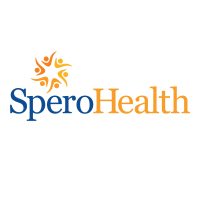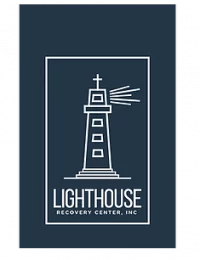Southwestern Behavioral Healthcare - Community Support Services
Drug Rehab Center in Evansville, Indiana
Southwestern Behavioral Healthcare - Community Support Services in Evansville, Indiana provides comprehensive outpatient treatment for individuals with substance use and mental health disorders, offering evidence-based treatments, wrap-around services, and telehealth options.
About Southwestern Behavioral Healthcare - Community Support Services in Indiana
Southwestern Behavioral Healthcare - Community Support Services in Evansville, Indiana provides comprehensive outpatient treatment for individuals with substance use and mental health disorders. Their services include assessments, Individual Therapy, family therapy, crisis intervention, peer support services, and recovery and wellness plans. They accept most major insurance plans, as well as Medicaid and Medicare. They also provide financial assistance to those who qualify.
At Southwestern Behavioral Healthcare - Community Support Services, they believe that recovery from addiction is not a one-size-fits-all approach. They provide evidence-based treatments such as Cognitive Behavioral Therapy and Motivational Interviewing to help addicted individuals take steps towards recovery and healthier lifestyles. They also offer additional wrap-around services such as life skills training and peer-support programming to help build a supportive environment for their patients.
Southwestern Behavioral Healthcare - Community Support Services is committed to providing high-quality treatment services. They are accredited by the Joint Commission and are a licensed provider in the State of Indiana. They have also been awarded the prestigious Baldridge Quality Award, which recognizes excellence in patient care. They also offer telehealth services, which allow clients to access treatment services from the comfort of their own homes.
Genders
Ages
Modality
Additional
Conditions and Issues Treated
Dual Diagnosis is a specific relationship between two or more disorders that have the same symptoms and can sometimes be treated together. This is used in the treatment planning process when dealing with drug addicts. Dual diagnosis can be viewed as a chronic medical condition that has comorbid psychiatric disorders.
Although addiction and a mental illness may have separate symptoms that are not easy to detect, they often go hand in hand. Many times, drug abuse is a direct result of the mental illness. In other words, treating the addiction will not resolve all of your issues. Unless you also treat the underlying mental illness, you will not be successful in achieving sobriety.
Levels of Care Offered
This center offers a variety of custom treatment tailored to individual recovery. Currently available are Dual-Diagnosis, Outpatient, with additional therapies available as listed below.
An outpatient treatment program is set up to help with alcohol or drug addiction, or a co-occurring disorder. The patient must attend the Indiana facility for their therapy and other programs but are able to return home each night. The frequency of mandatory attendance decreases after much of Southwestern Behavioral Healthcare - Community Support Services‘s program is complete.
Therapies & Programs
Individual Therapy is a critical component of addiction recovery. Therapists work with patients to identify the root of their addiction and figure out how to better handle the issues that led to them using drugs. Individual Therapy is the one-on-one session where people meet with their therapist. Individual therapy provides a safe space for people to open up and discuss personal and sensitive topics which they may not feel comfortable discussing in a group setting.
Group Therapy is utilized by drug treatment centers like Southwestern Behavioral Healthcare - Community Support Services to provide the recovering drug addict with a platform to talk about their feelings and experiences. It also provides for an opportunity to learn from other addicts who have successfully overcome their addiction.
Group Therapy is employed in lectures, seminars, or discussion groups (the latter two are typically conducted as “therapy groups”). It is recommended that all group members be recovering addicts for this type of therapy to work (though it does not exclude others with lived experience).
Cognitive behavioral therapy is also a popular service for individuals living with addiction. This type of supportive treatment uses both one-on-one counseling and group sessions to teach addicts how to identify thoughts, behaviors and emotions that might increase their risk of relapse.
These professionals can help addicts develop coping skills for managing stress, improving self-esteem and overcoming triggers. They might also use behavioral therapy to help addicts learn how to avoid cravings and warning signs that could lead them back into addiction.
Therapy can be used as a step-down from inpatient treatment or as the primary method of overcoming an addiction. No matter which option is best for the addict, they will teach important emotional coping techniques, which can make it easier for addicts to get through the tough days.
Nutrition therapy has been used to help drug addicts for decades. Many early reports on addiction treatment indicate that some patients recovered from the “satisfying power of food”. For years, this phenomenon has been utilized as a treatment modality in eating disorders for adults, adolescents, and children. Specific nutrients have been identified that influence neurotransmitters associated with reward pathways of the brain.
Studies have shown that carbohydrate loading with complex carbohydrates to elevate serotonin levels was effective in treating bulimia nervosa. This approach prompted researchers to explore the use of this type of nutritional intervention in other disorders.
Nicotine replacement therapy treats nicotine addiction using external sources of nicotine, such as patches or gum to substitute for nicotine. This allows people trying to quit smoking to get their desired dose of nicotine without actually having to smoke cigarettes. The idea behind NRT is that by providing smokers with nicotine in forms that are not cigarettes, they may be more likely to quit smoking.
NRT has been available for many years now, and there is a wealth of evidence that shows that it helps people trying to quit smoking. There are several different types of NRT devices on the market now. Patients interested in quitting smoking should talk to their doctors about the best kind of NRT for them.
Patient Experience
Experiential Therapy at Southwestern Behavioral Healthcare - Community Support Services
Experiential therapy is another form of treatment that helps addicts overcome their addiction. This type of service typically involves hands-on activities with the focus on physical experiences instead of emotions or beliefs.
Some examples include art therapy, equine therapy and music therapy. Each of these forms of experiential therapy can provide unique ways for addicts to channel their feelings and work through their demons. This type of therapy also allows addicts to develop meaningful emotional connections with others, which can prevent them from resorting to relapse as a coping mechanism.
Payment Options Accepted
For specific insurance or payment methods please contact us.
Is your insurance accepted?
Ask an expert, call (888) 674-0062
Additional Details
Specifics, location, and helpful extra information.
Evansville, Indiana 47713 Phone Number(812) 436-4243 Meta DetailsUpdated November 25, 2023
Staff Verified
Southwestern Behavioral Healthcare - Community Support Services Patient Reviews
There are no reviews yet. Be the first one to write one.
Evansville, Indiana Addiction Information
The state of Indiana ranks 14th in the nation for drug abuse, but 17th for drug overdoses. The state has many high-quality rehabilitation centers, but reports show that there are about 20 deaths per 100,000 people. This is due to its location making it a drug trafficking haven, where many drugs are further distributed into the country.
The drug addiction problem in Evansville, IN, is unfortunately quite severe. According to statistics, there were over 1,000 emergency room visits related to drug overdoses in Evansville alone. Cocaine is the most commonly abused drug. Businesses may suffer from decreased productivity and an increase in absenteeism. If you or someone you know is struggling with drug addiction and abuse, drug treatment facilities can provide the help you need to get sober.
Treatment in Nearby Cities
- Bedford, IN (85.1 mi.)
- Corydon, IN (80.5 mi.)
- Gary, IN (251.7 mi.)
- Chesterton, IN (253.4 mi.)
- Hartford City, IN (208.3 mi.)
Centers near Southwestern Behavioral Healthcare - Community Support Services
The facility name, logo and brand are the property and registered trademarks of Southwestern Behavioral Healthcare - Community Support Services, and are being used for identification and informational purposes only. Use of these names, logos and brands shall not imply endorsement. RehabNow.org is not affiliated with or sponsored by Southwestern Behavioral Healthcare - Community Support Services.



